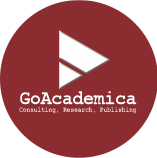STRENGTHENING THE POSITION OF INTELLECTUAL CAPITAL AND KNOWLEDGE MANAGEMENT IN HUMAN RESOURCE MANAGEMENT: AN OVERVIEW
DOI:
https://doi.org/10.15575/jim.v4i1.23664Keywords:
Intellectual Capital, Knowledge Management, Human Resource Management, Information Technology.Abstract
Changes in intellectual capital as well as knowledge management occur as a result of technological and information developments. These changes then affect human resource management in various ways. This research looked at how intellectual capital and knowledge management can influence the development of human resource management. This research will be carried out using a qualitative approach. The data used in this study is secondary data derived from various research results and previous studies. The results of this study then found that human resource management is very important in digital technology because companies need to develop according to the current era. Therefore, people who work in the shadows as people in charge of human resource management need to have strong intellectual capital and knowledge management. The existing human resource management can develop properly by having these two things.
References
Abdussamad, H. Z., & SIK, M. S. (2021). Metode penelitian kualitatif. Syakir Media Press.
Adillah, W. A. (2022). Human Resource Management: Application of Theory and Practice in Internal Organizations. Komitmen: Jurnal Ilmiah Manajemen, 3(1), 21-28.
Ahn, J., & Hong, A. J. (2019). Transforming I into we in organizational knowledge creation: A case study. Human Resource Development Quarterly, 30(4), 565-582.
Al-Htaybat, K., Hutaibat, K., & von Alberti-Alhtaybat, L. (2019). Global brain-reflective accounting practices: Forms of intellectual capital contributing to value creation and sustainable development. Journal of Intellectual Capital.
Ali, R., & Harahap, R. H. (2021). Evaluation of Education and Training Program at Medan Religious Training Center. Al-Tanzim: Jurnal Manajemen Pendidikan Islam, 5(2), 75-85.
Barker, R., Lennard, A., Penman, S., & Teixeira, A. (2021). Accounting for intangible assets: suggested solutions. Accounting and Business Research, 1-30.
Christophers, B. (2019). Putting financialisation in its financial context: Transformations in local governmentâ€led urban development in postâ€financial crisis England. Transactions of the Institute of British Geographers, 44(3), 571-586.
Coombs, C., Hislop, D., Taneva, S. K., & Barnard, S. (2020). The strategic impacts of Intelligent Automation for knowledge and service work: An interdisciplinary review. The Journal of Strategic Information Systems, 29(4), 101600.
De Haas, H. (2021). A theory of migration: the aspirations-capabilities framework. Comparative Migration Studies, 9(1), 1-35.
Glaveanu, V. P., Hanchett Hanson, M., Baer, J., Barbot, B., Clapp, E. P., Corazza, G. E., ... & Sternberg, R. J. (2020). Advancing creativity theory and research: A socioâ€cultural manifesto. The Journal of Creative Behavior, 54(3), 741-745.
Karasneh, A. A. F. (2022). Revitalizing the BSC through knowledge management: The mediating role of intellectual capital. Journal of Public Affairs, 22(1), e2359.
Kong, E., Wei, W. X., Swallow, P., & Thomson, S. B. (2020). Beltâ€andâ€Road Initiative: driving the need to understand intellectual capital in Chinese multinational enterprises. Thunderbird International Business Review, 62(3), 279-290.
Konno, N., & Schillaci, C. E. (2021). Intellectual capital in Society 5.0 by the lens of the knowledge creation theory. Journal of Intellectual Capital.
LumbanGaol, G. A., Firmansyah, A., & Irawati, A. D. (2021). Intellectual Capital, Corporate Social Responsibility, and Firm Value in Indonesia's Banking Industries. Jurnal Riset Akuntansi Terpadu, 14(1).
Nonaka, I., & Takeuchi, H. (2021). Humanizing strategy. Long Range Planning, 54(4), 102070.
Ode, E., & Ayavoo, R. (2020). The mediating role of knowledge application in the relationship between knowledge management practices and firm innovation. Journal of Innovation & Knowledge, 5(3), 210-218.
Ozkeser, B. (2019). Impact of training on employee motivation in human resources management. Procedia Computer Science, 158, 802-810.
Park, S., & Humphry, J. (2019). Exclusion by design: intersections of social, digital and data exclusion. Information, Communication & Society, 22(7), 934-953.
Pereira, A. M., Silva, M. R., Domingues, M. A., & Sá, J. C. (2019). Lean six sigma approach to improve the production process in the mould industry: A case study. Quality Innovation Prosperity, 23(3), 103-121.
Pusvitasari, R. (2021). Human Resource Management in Improving the Quality of Education. Al-Tanzim: Jurnal Manajemen Pendidikan Islam, 5(2), 125-135.
Rezny, L., White, J. B., & Maresova, P. (2019). The knowledge economy: Key to sustainable development?. Structural Change and Economic Dynamics, 51, 291-300.
Rockwell, S. (2019). A resource-based framework for strategically managing identity. Journal of Organizational Change Management.
Rokhadiyati, A. (2020). Evaluation of Implementation Policy on Management of School Operational Fund (BOS) 2019 with Edward III Model. Jurnal Pendidikan dan Pengajaran, 53(1), 25-42.
Saeidi, P., Saeidi, S. P., Sofian, S., Saeidi, S. P., Nilashi, M., & Mardani, A. (2019). The impact of enterprise risk management on competitive advantage by moderating role of information technology. Computer standards & interfaces, 63, 67-82.
Smyth, S. M. (2019). The Facebook Conundrum: Is it time to usher in a new era of regulation for big tech?. International Journal of Cyber Criminology, 13(2), 578-595.
Syafrizal, R., & Fitrianingsih, F. (2022). Analysis of Islamic Human Resources Performance Policy Management Practices in Private-Owned Enterprises in North Sumatera. EKONOMIKA SYARIAH: Journal of Economic Studies, 5(2), 167-178.
Szarkowska, A., DÃaz Cintas, J., & Gerber-Morón, O. (2021). Quality is in the eye of the stakeholders: what do professional subtitlers and viewers think about subtitling?. Universal Access in the Information Society, 20(4), 661-675.
Van Criekingen, K., Bloch, C., & Eklund, C. (2022). Measuring intangible assets—A review of the state of the art. Journal of Economic Surveys, 36(5), 1539-1558.
Downloads
Published
How to Cite
Issue
Section
Citation Check
License

This work is licensed under a Creative Commons Attribution-ShareAlike 4.0 International License.













